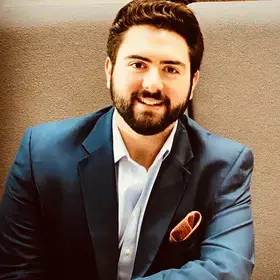As a full-time actor living in Seattle, Phillip Mitchell was far removed from the medical community until a pivotal role introduced him to the world of Narrative Medicine.
Around 2006, he began to apply his theatrical talents to EffectiveArts, an organization that trained donation coordinators who solicited organ, tissue, and eye donations. ”For instance, I would play the family member of a patient who was near death,“ he says. “The person approaching the family of the patient doesn’t want to harm the family in any way, so [the simulations] gave [coordinators] good practice; it helped them illuminate how they might improve what they do.”
From there, an acquaintance whom Mitchell met through his then-theatre group told him about Columbia University’s Narrative Medicine program. Mitchell had found his work with medical practitioners rewarding. “I was already on board with the idea that art can make a difference,” he says, “that art can expose people to their own humanity and to the humanity of others and help create an environment in which people can communicate better.” So when he discovered the Narrative Medicine graduate program, “It seemed the next logical step for me in my life.”
In 2012, he and his wife relocated from Seattle to New York so that he could enroll in the program full-time. Having chosen the full-time option, Mitchell completed the program in one year, from 2012-2013.
He says that one of the most memorable aspects of the program was conducting Narrative Medicine workshops with resident physicians and interns at The Allen Hospital in the Bronx, one of the five centers that comprise NewYork-Presbyterian Hospital. “We would meet in the break room, have a cup of coffee, and facilitate a workshop on a Wednesday morning right before their shifts at the hospital,” says Mitchell. A typical workshop entailed reading a literary passage that explored the nature of care, discussing the piece, and using the excerpt as inspiration to write one’s own story.
Although he was immersed in literature and writing, he says that, like some other students in the Narrative Medicine program, “I had no literature background.” Interpreting and creating texts sometimes felt like “swimming in the deep end of the pool.“ But books like The Wounded Storyteller by Arthur Frank and Narrative Medicine: Honoring the Stories of Illness by faculty member Rita Charon urged him to further engage his skills with the goal of helping to improve health care.
Now that Mitchell has completed the program, he says, “It has given me an entirely new career.“ He has moved back to Seattle where he continues to pursue acting. However, he will also explore his newfound love of academia: “I’m now adjunct faculty at Antioch University, Seattle campus. I’m teaching a course called Writing Narrative Medicine this coming term.”
In 2014, Mitchell also created NarrativeCare, a small business based in Seattle that offers Narrative Medicine workshops for physical therapists and, soon, massage therapists. These workshops will provide hours that will count towards these professionals’ relicensing.
He says of his experience in the Narrative Medicine program, “I learned to appreciate the difficulty and the challenge of being a health care provider, especially a physician. It’s easy to place doctors on a pedestal. But they are human beings with the monumental task of trying to understand the human body.” He says, "They’re completely buried in new information and required to [apply it] under great pressure. And they constantly need to upgrade their skills, understand new technologies and drugs – and perform, many times, in life or death situations. It’s almost as if they’re trained to be machine-like, so it’s no wonder that they sometimes lose touch with themselves as human beings."
Of helping medical professionals enhance care through Narrative Medicine training, Mitchell says, "They need our help. We need to care for them."


